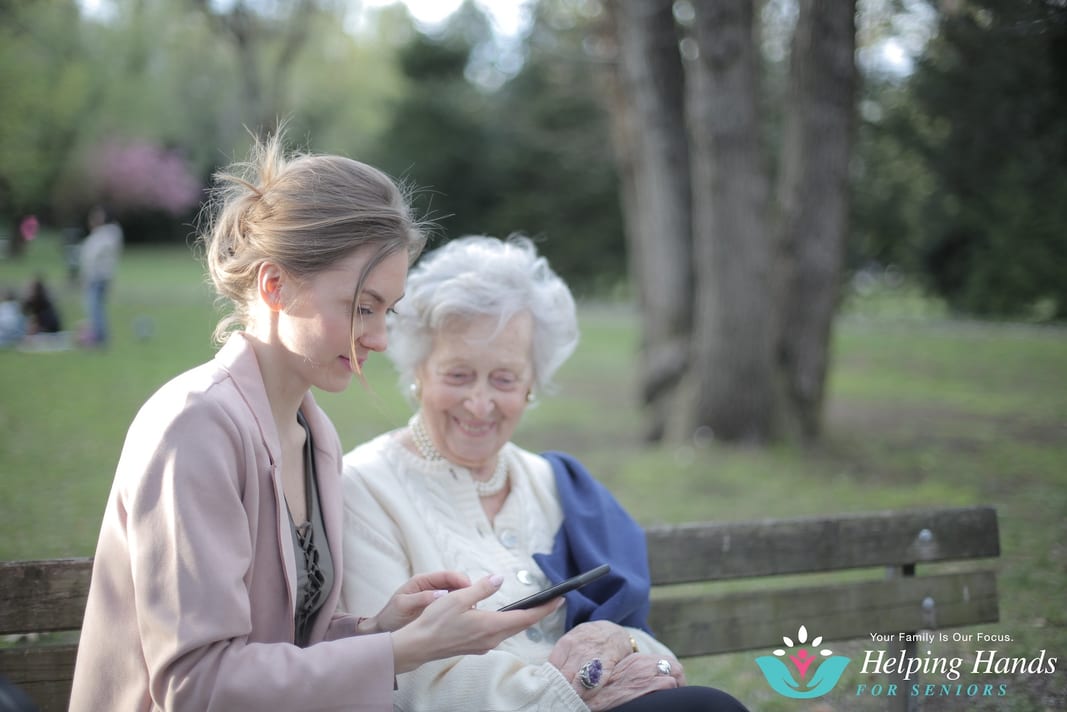Senior Caregivers: How To Tell Family You Can’t Anymore
How do you tell family that you can’t be a senior caregiver anymore? How do you manage feelings of guilt? No matter the reason, when you’ve decided that you can’t continue to be a senior loved one’s caregiver, it can be a difficult situation and an emotional challenge. There is also the practical matter of transitioning the person to other care. As experts in senior living and this particular life transition, Helping Hands for Seniors has some advice on how to tell family you can’t be a senior caregiver anymore.
Accepting your feelings and reasoning.
How does someone know when they can no longer manage caregiving responsibilities? Unfortunately, this question usually does not arise until the caregiver is already feeling overwhelmed. Being able to say no to caregiving can save you from emotional and physical burnout.
The first step before telling family is to take time to check in with yourself. If you’re feeling guilty over this decision, try to work on acknowledging your feelings and reasonings as valid. Remember to have self-compassion and kindness for yourself.
Choosing to say no to caregiving and choosing what is right for you is not selfish. It can help you maintain your own well-being and allows the senior to get better support and care in a safer, more controlled environment. It can prevent you from growing resentful in a caregiver role that doesn’t suit you and protect the relationship from being damaged. Stepping away as a caregiver doesn’t mean your senior loved one is out of your life. In fact, you will have more time to focus on your relationship and deepen your bond..
Talk to other family members first and consider how others will be affected.
Before discussing your decision with the senior you’re caring for, talk to other family members. Consider how they’ll be affected and if they’d be willing to step up in any caregiving roles. Family dynamics can be strenuous; some family members may resent you for your decision. Remember to focus discussions on what’s best for your aging loved one.
Talking with close family members and asking their input before holding a family meeting can help you refine what you’re going to say.
Hold a family meeting.
When you’ve made the decision that you can’t be a caregiver anymore, it’s important to hold a family meeting. Invite family and friends who are involved or have interest in the senior’s care to sit down for an honest conversation. Explain the situation and your reasoning. Having a meeting like this allows everyone to work cooperatively to ensure the senior gets the care they need.
Careful and compassionate communication.
You may feel unsure of how to tell family or a senior loved one that you just can’t continue caregiving. For a successful conversation about long term senior care, be forthright about your feelings and boundaries.
- An effective way to communicate is by using “I” statements in a non-accusatory fashion such as “I feel this way when…”
- Use inclusive language such as reminding everyone that “we’re in this together” and asking their own ideas.
- Stay calm. Don’t get defensive at their reactions or angry if conflict arises.
Suggest solutions.
Suggesting different solutions (such as at-home care or assisted living) will help ease any anxieties with this change. Coming prepared with specific suggestions shows your sincere concern for the future care of the individual.
A transition period can be a great way to end caregiving with less stress. Many assisted living communities offer respite stays so seniors can have a trial run first to see if it’s the right place for them before fully committing.
It is essential that caregivers feel comfortable saying no so that they can stay involved as positive advocates for the future care of their senior loved ones.
Plan on multiple conversations.
Understand that a single conversation might not be enough for all parties involved to process your decision to stop caregiving. So give your loved ones time and space on this issue but plan on having multiple conversations.
When deciding on next steps for the senior’s care, know that even more discussions will likely be necessary. Be patient and stay strong in your stance.
The next step.
There are resources available to help you find the care your senior loved one deserves. Helping Hands for Seniors can help you learn more about caregiving alternatives. We assess your unique situation, provide information about different senior living options, and connect you with the very best local senior communities. We guide you through the entire process of finding the right senior living options for you or your loved one.
If you’re interested, please reach out and contact us through the form on our website. You can also call us: 503-694-9577 or email info@helpinghandspdx.com


